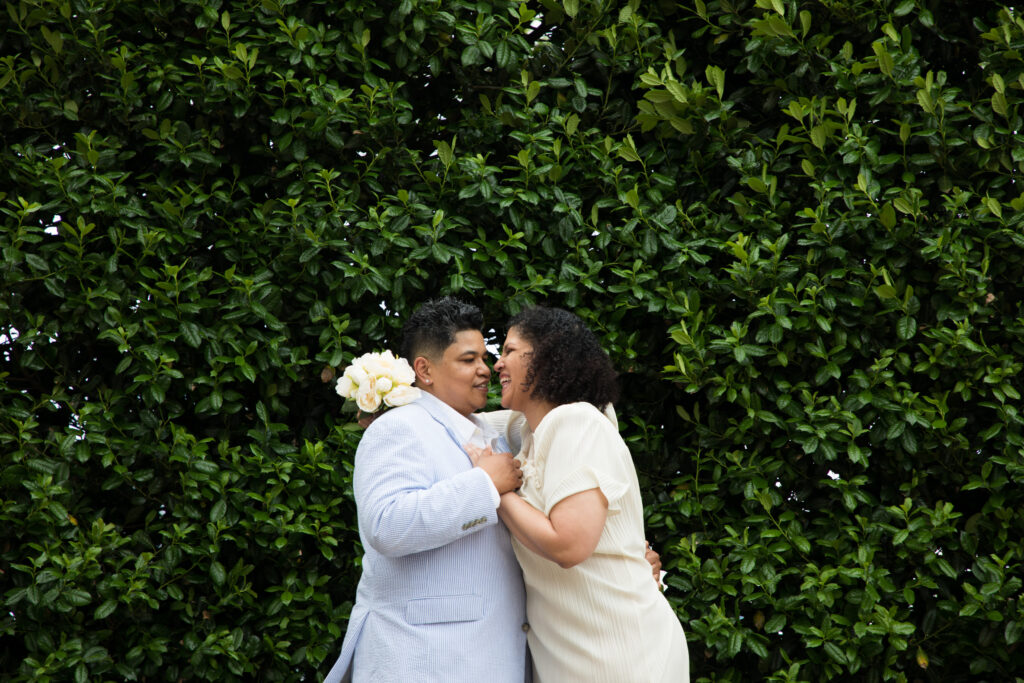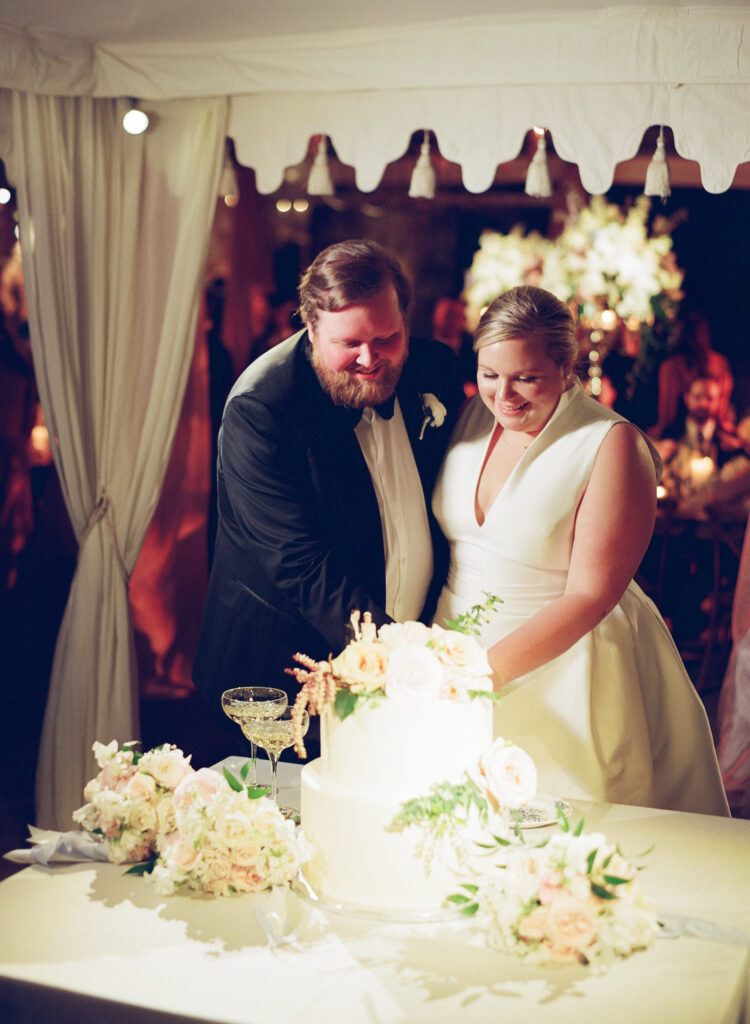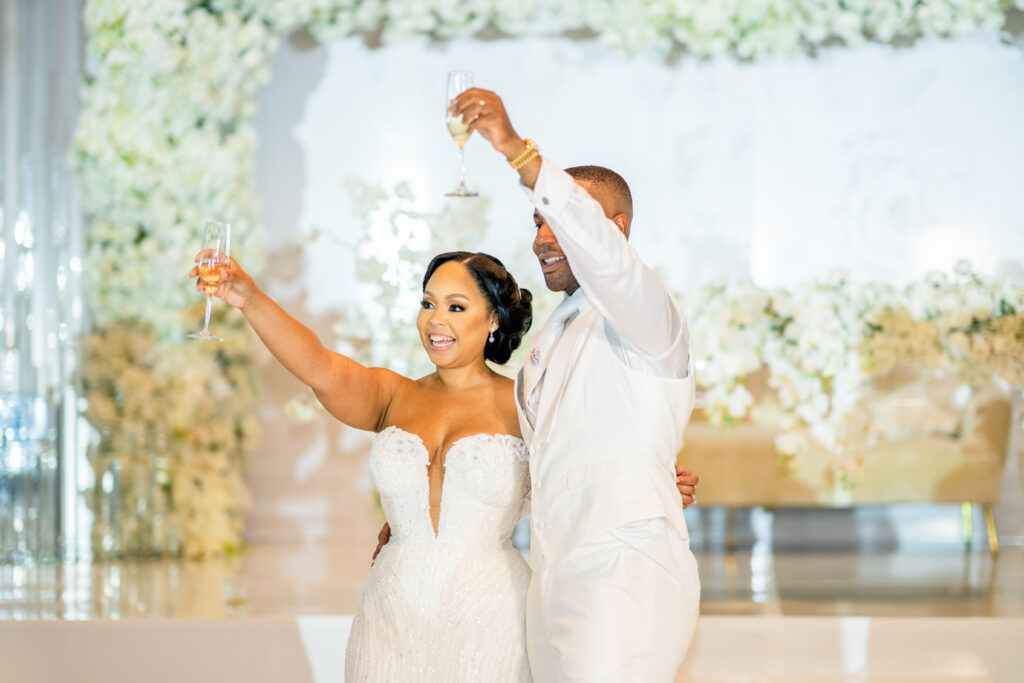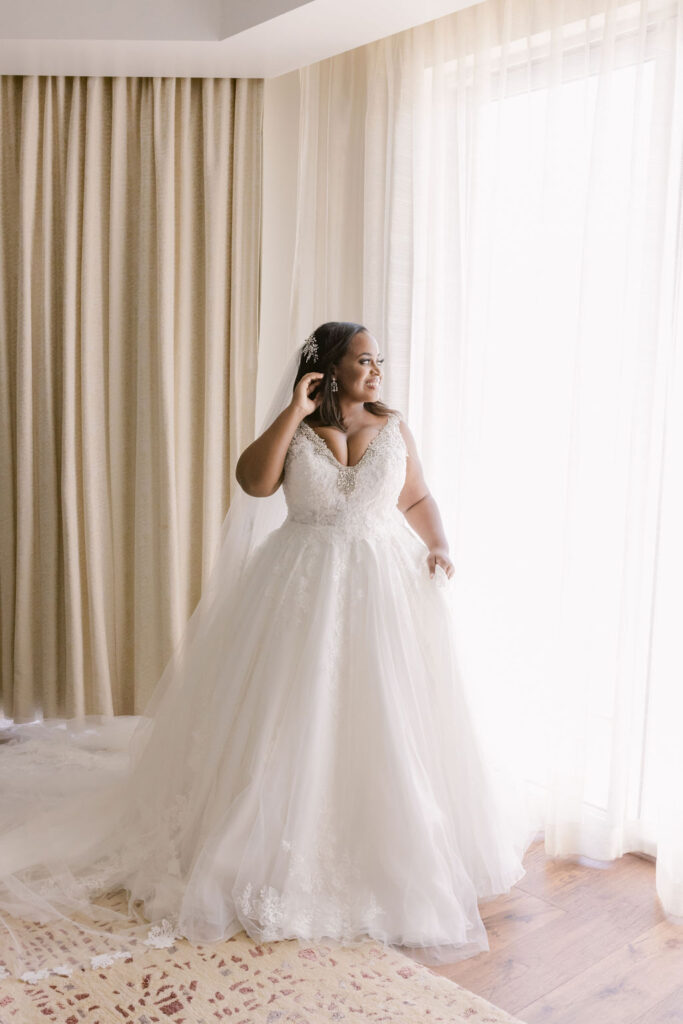
As the blissful excitement settles after getting engaged, couples must face the elephant in the room: planning a wedding doesn’t come cheap. While there are plenty of ways to cut down your wedding budget, newly engaged couples should still expect a five-figure price tag. But no matter how much or how little you aim to spend, it’s important to define financial responsibilities for the couple and their family.
In other words, who pays for what?
For centuries, tradition dictated who was on the hook for certain expenses. Specifically, “one of the celebrant’s families traditionally pays for most of the wedding expenses,” explains Jacqueline Vizcaino of Tinted Events. “The other family typically covers the cost of the rehearsal dinner, wedding rings, and transportation.”
However, modern couples have broken the norm, according to this article. The average age of marriage has risen to the mid-thirties, with many nearly-weds more financially stable than their twenty-something counterparts (The Knot, 2021). Plus, they’ve likely created a life together, leaving little desire for opinionated parents to oversee their wedding budget.

“Unlike in the past, parents are not always holding purse strings,” Vizcaino affirms. “This can make budgeting and keeping track of expenses a bit more challenging. Still, it allows couples more flexibility in how they spend their money and have more of a say regarding final selections and the overall guest experience.”
If you’re in the early stages of planning, setting your wedding budget is vital. However, before discussing numbers, you must determine who will contribute and how much of a say they have over significant decisions.
While money isn’t the comfiest subject to broach, it’s a necessary conversation before moving forward with planning. Fortunately, we asked experts to chime in with advice to discuss money matters with a calm, no-pressure approach.
Don’t delay the inevitable
You need to start paying invoices when you begin booking, so have the money talk long before you wonder, “Whose credit card does this go on?” First, discuss with your partner whether you want to accept contributions from family. Then, bring it up with your chosen loved ones to see if they’re open to helping.
“Sit down and have the money conversation with yourselves and with your family, or whoever else might financially contribute BEFORE any decisions are made and certainly before any contracts are signed,” encourages Julianne Smith of The Garter Girl. “It is better to have an uncomfortable conversation at the beginning about money than a hard conversation about overspending or unpaid bills later on.”
Guide the conversation beyond a “yes” or “no.” If someone agrees to provide financial support, find out how much they’re willing to contribute. Ask them if they care how you spend it. You may also want to discuss a spending timeline to see if they’d like to help with early payments (like your venue and photographer) or if they’d prefer to save up and contribute later.
“I find that going into the conversations with a calm and open mind is best,” assures Laura Maddox of Magnolia Celebrates. “Being clear and direct about expectations and asking for clear answers helps all involved. This affects every decision. The last thing you want is to have a vague conversation about the budget and end up falling in love with a vendor you thought you could afford, only to find out you can not afford them.”
Ease up on wedding party expectations
While you might be ready to shell out a small fortune on your wedding, remember that it’s your day. And while your wedding party members are just as excited to celebrate your love, they probably aren’t eager to cough up lots of money for a single event.
“When asking your wedding party to participate in your event, be clear with them about what you expect,” suggests Nora Sheils of Rock Paper Coin and Bridal Bliss. “Sometimes all the travel, attire, and events are way too much, but there is so much guilt involved that friends and family feel obligated and put themselves financially in a bad place.”
To avoid placing undue stress on your wedding party, consider covering expenses for “must-have” additions. As Sheils notes, “you should cover the cost if you require something beyond the dress, such as a specific hairstyle, makeup, or pair of shoes. Otherwise, give your wedding party flexibility!”
Likewise, allow your wedding party members grace if they cannot attend all of your pre-wedding events. Sure, you want them at your bach party — but it’s not worth adding stress and resentment over financial obligations. If you genuinely can’t picture celebrating without them, plan your pre-wedding events around their schedule and budget!

Give plenty of notice for destination weddings
It’s no secret that destination weddings cost more for guests to attend, so it’s thoughtful to let people know in advance. An early conversation about financial responsibilities might reveal that a particular destination is unaffordable, so talking about money can greatly influence the scope of planning a destination wedding.
“Many destination wedding couples have an upfront conversation with their loved ones regarding their budget, so they can choose a destination and venue that is within everyone’s price range,” confirms Jen Avey of Destination Weddings Travel Group. “Unfortunately, without knowing people’s budgets, you may choose a location most of your loved ones can’t afford.”
Since destination weddings often involve all-inclusive packages, financial contributions can look different for couples and their families.
As Avey shares, “We’ve seen parents (and even the wedding party) decide to pay for the couple’s room or contribute towards a first-class plane ticket as a gift. More recently, we’ve seen couples receive a lump sum contribution/gift at their discretion. For example, they may receive $5,000 from each of their parents and decide to put half of it towards the wedding and save half for a down payment on a house. There are no rules!”
Ultimately, it’s up to the couple to decide who pays for what. Strict traditions have been left in the past, so couples can choose whether or not to ask for help. Either way, open communication and realistic expectations allow you—and your loved ones—to easily navigate this tricky situation.
Meghan Ely is the owner of wedding PR and wedding marketing firm OFD Consulting. Ely is a sought-after speaker, adjunct professor in the field of public relations, and a self-professed royal wedding enthusiast.







